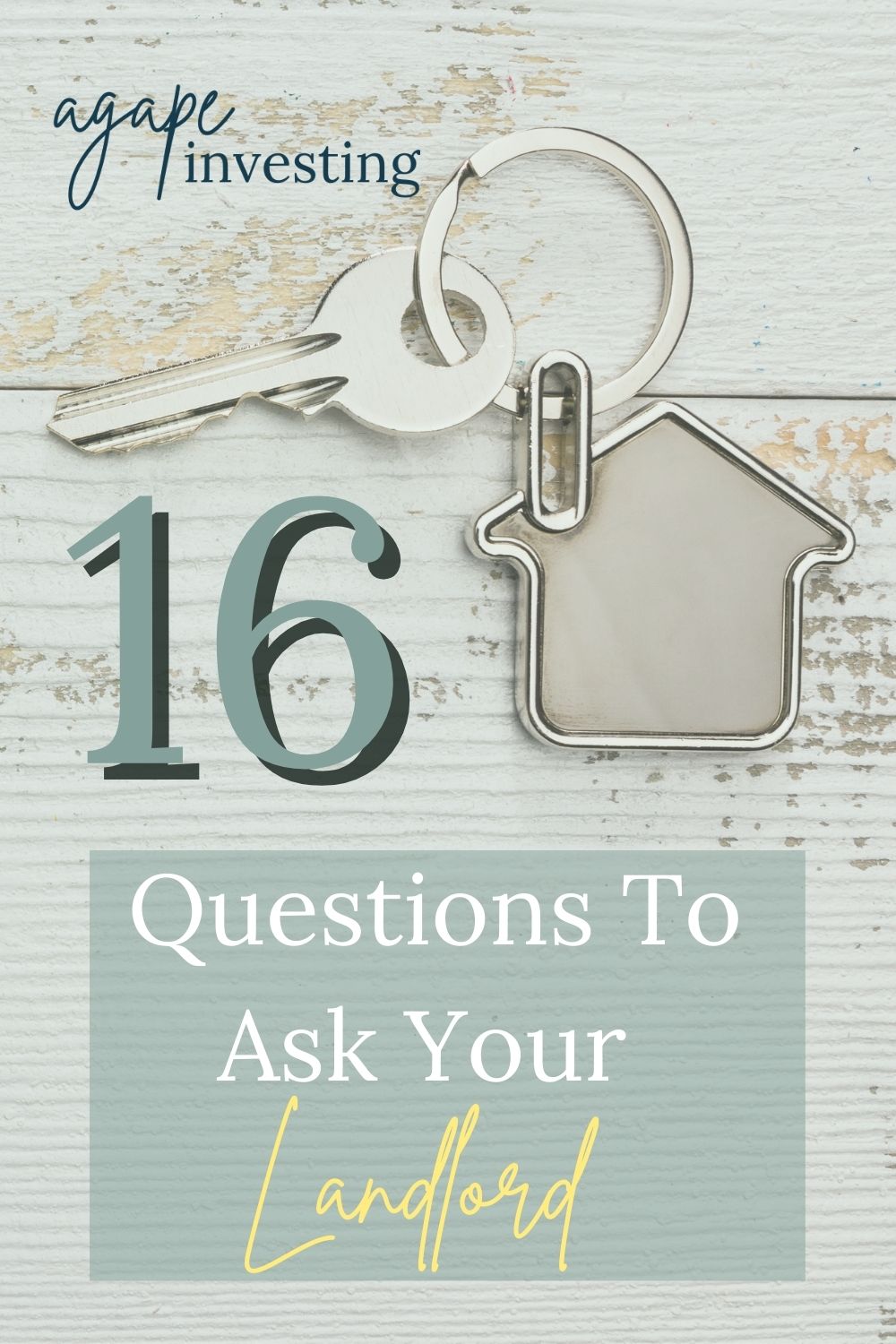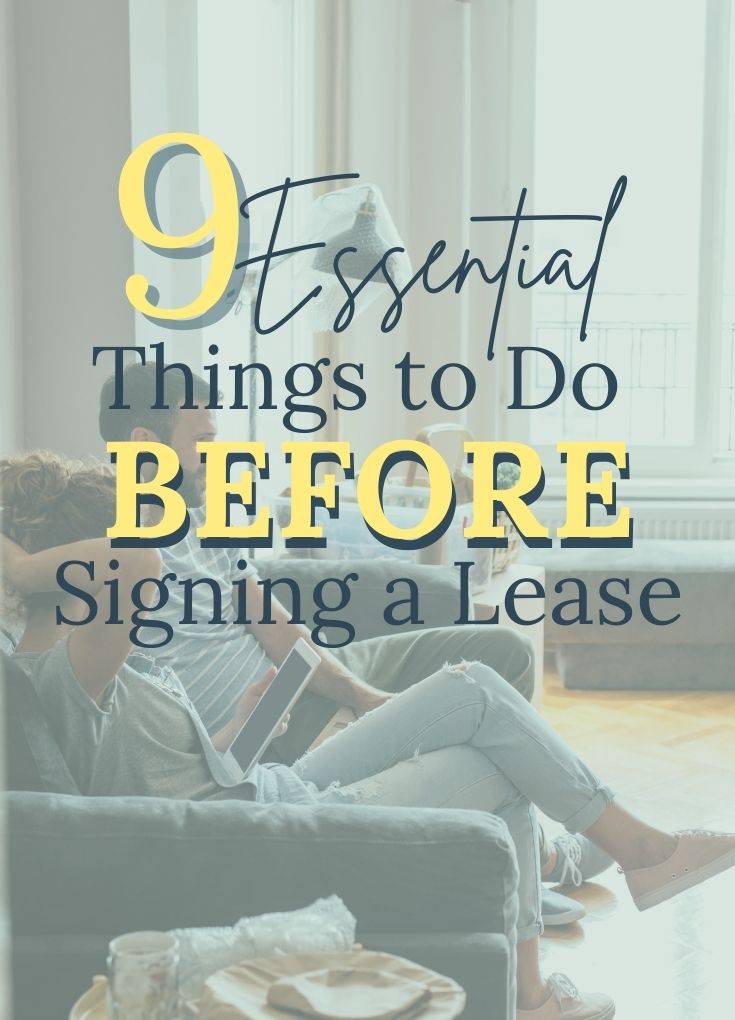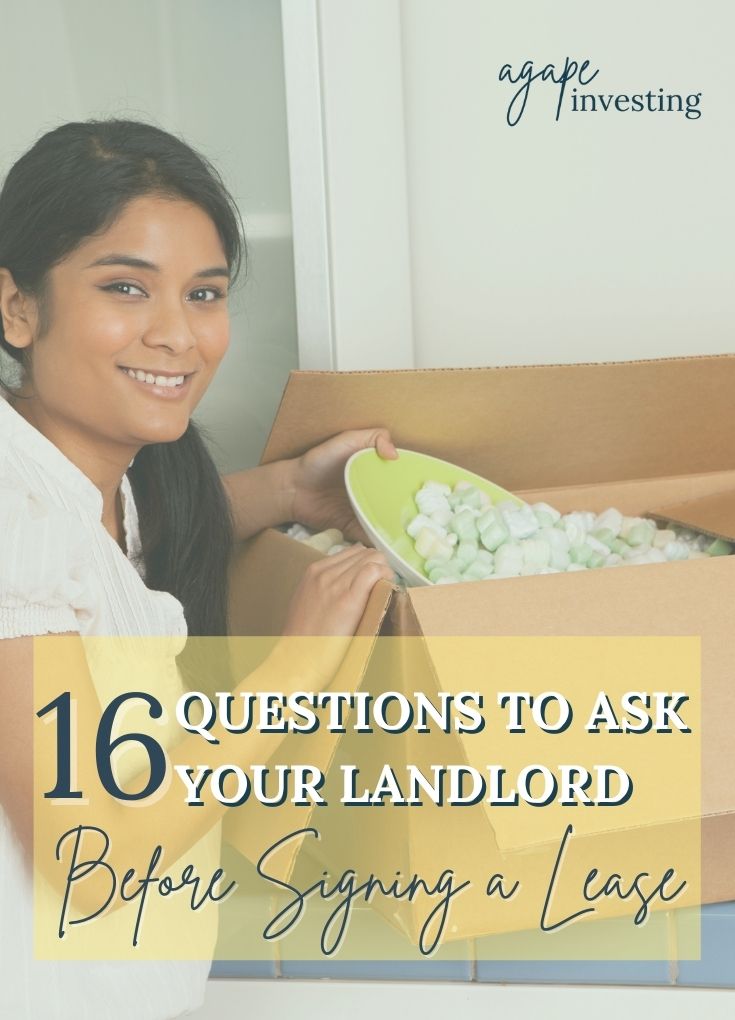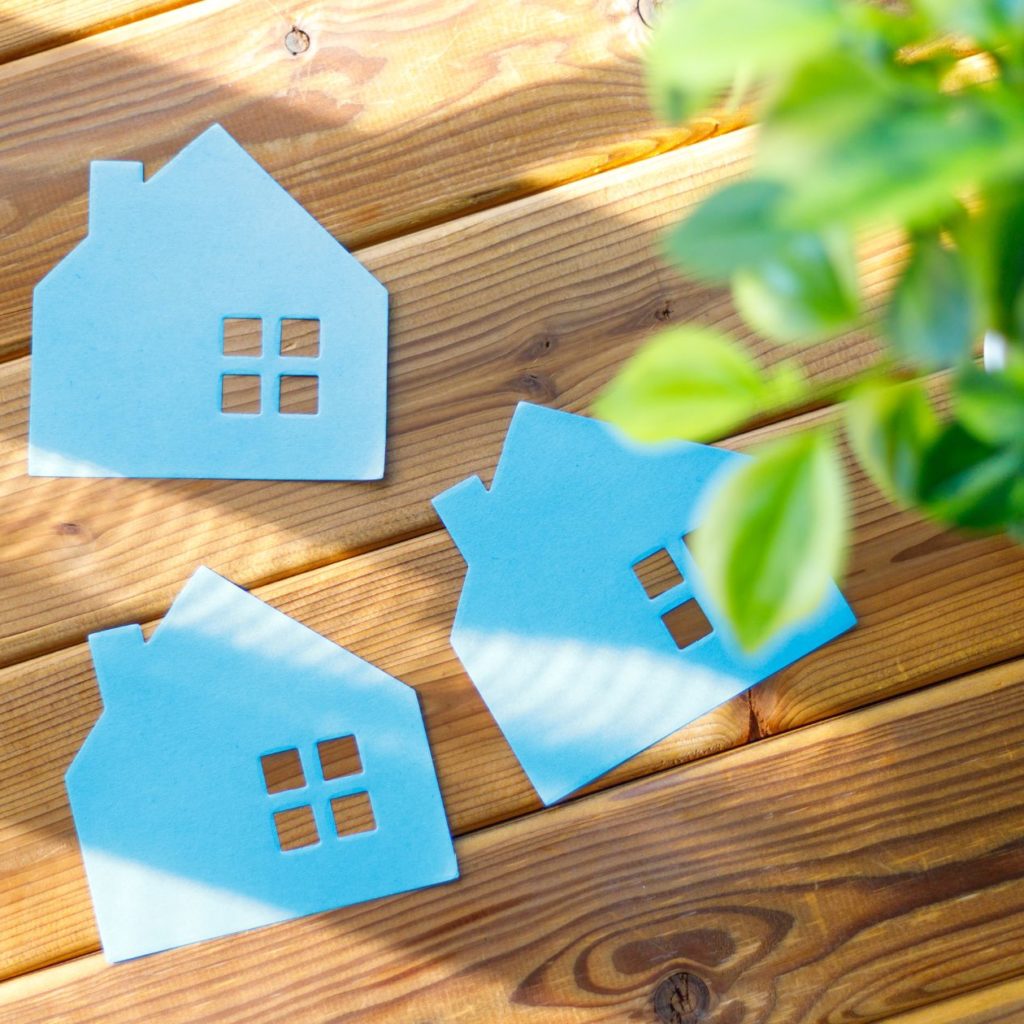16 Questions To Ask Your Landlord Before Signing a Lease
Renting a property for the first for the tenth time can be exciting. A new place to call home can be a sign of new and fresh beginnings. But there are a lot of things you will need to do before you move into your new place. In fact, there are things you need to do, or rather ask, before signing a lease.
In this article we will go over 16 questions to ask your landlord before signing a lease as well as why each question is important. Some of the questions may not pertain to your specific situation, but could in the future. It’s always helpful to get the whole picture of what being a tenant will be like under your new landlord.
So before you sign that lease, make sure to ask these questions!
Related: How To Know When You’re Ready to Buy Your First House

9 Essential Things to Do Before Signing a Lease

- Confirm that the property meets all of your needs
- Determine if you need a cosigner
- Inspect the property, and document the move in condition with photos
- Negotiate the rent if you haven’t yet
- Figure out if the security deposit needs to be a cashier’s check/money order or not
- Find out how many keys and garage remotes you will be getting
- Read the lease terms thoroughly
- Confirm that the names and terms are listed correctly on the lease
- Ask these 16 questions to make sure you understand what you’re getting into
16 Questions To Ask Your Landlord Before Signing a Lease
1. Is renter’s insurance required?
Many landlords require that their tenants carry renter’s insurance while occupying their property. While I would recommend being covered by renter’s insurance whether your landlord requires it or not, it is good to know if your landlord requires proof of insurance.
Renter’s insurance is typically very low cost, and can usually be added on easily by your insurance provider.
2. What is the maintenance procedure?
Find out what the maintenance procedure is before you have a maintenance issue! Is there someone you need to call to put in a work order and how long does it typically take to get approved?
Related: The Ultimate Preventative Home Maintenance Checklist
3. Who is responsible for paying the maintenance bills?
Once you have figured out how to put in a work order for any maintenance needed in your rental, a good follow up would be to determine who has to pay for the maintenance.
It is typical for a landlord to pay for maintenance in which you did not specifically damage something. However, if they determine that an appliance failed due to a tenant mistreating it, the bill may fall on you. Be aware of how they determine who pays for the work.
4. Is painting and updating allowed?
How much can you make your new place feel like home? Is painting allowed or making minor updates like changing the showerheads or curtains?
Understand the rules when it comes to making updates so you don’t run into any trouble down the road. In some cases, if you change something, you may be responsible to have it changed back.

5. What is the policy on subleasing?
If you are renting a property with roommates, I always recommend finding out whether or not subleasing is allowed. That way, if you or a roommate has a big life change (like getting married) you will know whether or not you can replace that person with a new roommate. Otherwise, one person may be left finishing out the lease all on their own.
If your landlord does allow subleasing, figure out what the process is like and if there are any fees associated with the change to your lease.
6. What’s the penalty for breaking the lease?
Things happen and sometimes you need to get out of a lease early. It is always a good idea to know what the penalties are for breaking a lease. Your landlord may have fees associated with breaking the lease. If you do ever need to break it, it is a good idea to see if the fees outweigh continuing to pay rent normally until the lease is completed.
7. Are there renewal fees for extending the lease?
As your lease comes to an end, you may be offered to extend it. However, some landlords do charge a renewal fee to modify your lease. The fee to do so is typically less than it would cost you to move to a new property, but it would be best to know beforehand so you can plan for the expense in your budget.
8. Who is responsible for lawn care?
If you are renting a property with a lawn, you will need to find out if you are responsible for the up keep. If you are responsible for the lawn you will need to be prepared with a lawn mower, sprinklers, etc. Or, you could plan to add a lawn care service to your budget if you don’t want to do it yourself.
I recommend making a plan now, because if a lawn dies, it can be expensive to replace and you don’t want to get stuck with the bill.
9. How are utilities handled?
In Colorado, it is pretty common for a landlord to cover the water and sewer bills, while the tenants are responsible for the other utilities as well as taking care of the lawn. But utilities can differ per property and it is up to the landlord to determine who’s responsibility they are.
Before signing a lease, find out what you will be responsible for because this will ultimately affect how much it will cost to live at the property.
10. Is there an HOA and what are the rules and regulations?
If you are renting a house, or condo that is governed by an HOA, your landlord should provide you with the rules and regulations for the community. You don’t want to accidentally break any of the rules and get fined for it.
You also should find out if the HOA forbids certain things that may hinder your own quality of life while living in the property. For example, some HOAs do not allow vehicles to be parked in the street overnight, or allow RVs to be parked on the lots or driveways.
11. When and how is rent paid?
When is rent due each month? Is it on the 1st of the month or a different day? Find out when you need to pay rent and how rent needs to be paid.
Some landlords will require rent to be dropped off at a specific place, while others are cool with taking rent payments over Venmo. Figure this out before rent is due so you are prepared for that first payment.
12. Are there any late fees?
I know that you probably plan to always pay your rent on time, however, we all come across instances where that might not be possible. Find out what kind of late fees your landlord changes.
Some landlords will charge a flat fee if the rent is late, while others may charge a percentage of the rent. I would also recommend understanding your state laws on late fees. Make sure your landlord isn’t illegally charging too much when the rent is late!
13. What is the pet policy?
If you have pets or are considering getting pets in the future, figuring out the pet policy in advance should be important to you. It would be a shame to sign a lease and find out that you can’t adopt Spots down at the local animal shelter.
If pets are allowed, find out if there are any fees associated with having that pet. It is common for landlords to charge pet rent or ask for an extra deposit.
14. When does the notice to vacate need to be given?
Before signing a lease, you will want to ask your landlord how far in advance do you need to give notice before moving out. It may be weird to think about moving out before you even move in, but knowing this information will help set you up better for when you are ready to move on to the next place.
It is typically for landlords to want 30 to 60-day notices before moving out. Make sure you know what your landlord’s policy is.
15. What are the move out policies?
Aside from figuring out when you need to give notice of vacating the property, you should also find out what is required of you during the move out process. Do you need to pay for the carpets to be cleaned? Are you responsible for patching the walls from nail holes?
Some landlords will want to schedule a final walkthrough of the property the moment you move out. Be prepared to work that out with your landlord when you are moving out.
16. Is the security deposit refundable?
Security deposits can be used for a lot of different things once a tenant has moved out. One of those things could potentially be your last month’s rent. If so, then your security deposit wouldn’t be refunded.
Determine whether or not your security deposit is refundable, up to how much of it is refundable, as well as how they determine how much to refund back to you. This will hopefully prevent unnecessary disputes in the future.
Take The Time to Ask These Questions
“An ounce of prevention is worth a pound of cure.”
It never hurts to be prepared. These questions to ask your landlord before signing a lease are important. The answers to these questions will help you to determine if living here for the next several months or years is truly worth it. They answers can dramatically change your quality of life one way other the other, as well as impact how much you are spending on housing!
Some answers may reveal that living here will be more expensive than you originally anticipated. The policies that are in place may prevent you from becoming a parent to a new fur baby, adding a new roommate, or changing the color of your bedroom. It is better to know now rather than signing a lease a finding out later when it is too late.
What other questions would you add to this list?
You May Also Like
10 Things You Need to Do Before Moving Into Your New House
3 Practical Ways to Love Your Tenants Well
What to Do When Your Tenants Cannot Pay Rent
6 Common Home Buying Myths




It’s really important that you ask who will be paying for maintenance and repairs. Better be clear on that before signing off on anything, otherwise, that would be a pain to deal with